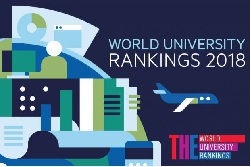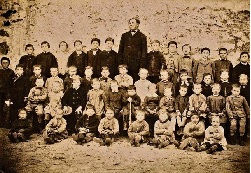September 2017 Research, Science and Knowledge
Read the articles selected in September 2017
Enhancing the education mission of European universities: A proactive response to change
Source: http://www.eua.be (European Universities Association)
This paper proposes ten principles that enhance the role of teaching and learning, closely linked to research, in promoting innovation in a changing world. Education makes students active and responsible citizens, critical thinkers and problem solvers with an attitude towards lifelong learning.
How do teachers teach? Insights from teachers and students
Source: http://www.oecd.org,
After the last Teaching and Learning International Survey (TALIS), structured teaching practices are the most commonly used in mathematics classrooms, given the restrictive teaching conditions such as the scarce classroom time, that could limit more innovative, student-oriented strategies.
Tertiary enrolment exploding but benefits vary – OECD
by Brendan O’Malley
Source: http://www.universityworldnews.com, 16 September
In the choice of their future careers, young people should be supported and guided toward a better balancement of personal interests and labor market opportunities. STEM related fields benefit from higher employment rates and are the subjects where gender gap most persists.
Read more:
http://www.universityworldnews.com/article.php?story=20170916062103380
EU Funding for Universities
Source: http://www.eua.be/
After Eua’s annual Public Funding Observatory, public investment in tertiary education is decreased. Europe’s funding is crucial to support universities, key actors in addressing the most important issues of our time and in the safeguard of the European idea and values.
EU focus on open science “detracts from research career efforts”
by Holly Else
Source: Times Higher Education, 16 September
The chief policy officer of the League of European Research Universities declared that the European open science agenda distract policy makers from the efforts needed to make more appealing and stable the career prospects of the 1.73 million of European researchers, the biggest research labor force in the world.
Awarding-and imagining-teaching excellence
by Andreas Schleicher
Source: http://www.oecd.org, 4 September

At a time when knowledge and skills are the access key to the society and labor market, the best investment and at same time a commodity available for all, the quality of teaching has become as important as research excellence.
Read more:
http://oecdeducationtoday.blogspot.it/2017/09/awarding-and-imagining-teaching.html
University of Rome II Tor Vergata- World University Rankings 2018
Source: https://www.timeshighereducation.com, 5 September

In the THE World University Rankings 2018, the University Tor Vergata is placed in a position between 401 and 500. Our institution is praised as well as for teaching and research, for its third mission promoting social innovation and local growth, and for its facilities combining sustainable research and beauty.
Read more:
World University Rankings 2018
Source: Times Higher Education, 5 September
Despite the uncertainty of Brexit, the two top institutions in these world’s Rankings continue to be Oxford and Cambridge, whose research funding comes by an important proportion from EU. Relation with the territory, global outlook and audacity turned out to make the difference.
Read more:
https://www.timeshighereducation.com/news/world-university-rankings-2018-results-announced
How do university rankings maintain their influence?
by Miguel Antonio Lim
Source: http://www.universityworldnews.com, 8 September
Despite the relative skepticism with which their publication is accompanied, university rankings respond to the need for more accountability in higher education, and have developed with the time stronger methods and more reliable data.
Read more:
http://www.universityworldnews.com/article.php?story=2017090513250829
EUA opinion poll on the impact of new simplification measures introduced for Horizon 2020
Source: http://www.eua.be/, 7 September
The European Universities Association (Eua) is launching a poll to text its members on the advantages and potential pitfalls in the procedures of participation in Horizon 2020, to simplify the administration of research projects and develop new rules for the next EU Framework Programme.
Read more:
Do great minds think alike? The THE/Lindau Nobel Laureates Survey
di Jack Grove
Fonte: Times Higher Education, 31 Agosto

While the pressure imposed to scientists to produce results with real-world impact and the restrictions in funding is detrimental for fundamental research and risky projects, populism and political polarisation are conducive to ignoring all evidence-based, scientifically proven data.
Read more:
Transition from school to work: How hard is it across different age groups?
Source: http://www.oecd.org, August 2017
In the Oecd countries, a 36% of NEETs have left school without an upper secondary qualification. Compulsory education should be supported by measures preventing students at risk from dropping out of school. Young people should be given a second chance to re-enter education and access in the labor market.
Read more:
École un débat de taille
by Aurélie Collas
Source: Le Monde, 2 September

The size reduction of school classes in France is relaunching an old, political and religious debate on well-established pedagogical models, that still don’t consider heterogeneity of pupils. This reform is not a miraculous solution, if teachers are not trained to teach.
Internet commence à bouleverser l’enseignement
by Éric Albert
Source: Le Monde, 1 September
Online courses represent a huge economic potential in the market of education and at the same time a vehicle for change in the teaching methods. The existence of Internet has greatly facilitated tertiary education and lifelong learning.
The complex politics of teaching in English in HE
by Hans de Wit
Source: http://www.universityworldnews.com, 1 September
A study commissioned by the Dutch minister of education, culture, and science on the language choice and language policy in Dutch higher education suggests a more balanced approach considering the specific objectives of study programmes and how this influences the use of Dutch in national society and culture.
Read more:
http://www.universityworldnews.com/article.php?story=20170829100757301
Info
- Pubblicato il : 19/12/2017 Modificato il : 04/04/2019

